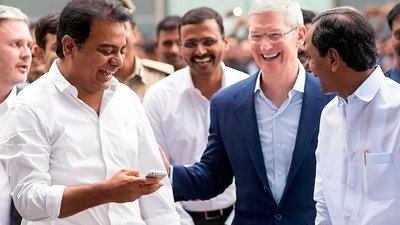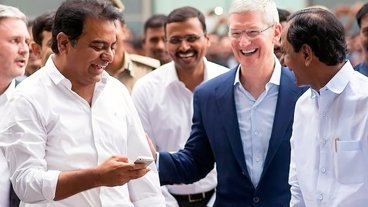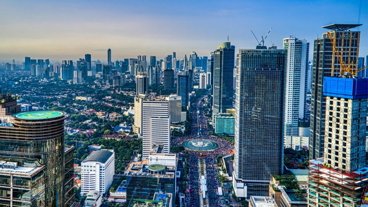Apple supplier Foxconn is struggling to get its factories in India to operate efficiently, with employees citing language barriers, culture clashes, and difficulty adapting to strenuous schedules.
Foxconn began production of iPhone in India starting in 2019 with iPhone XR. That expanded into iPhone 11 in 2020, then each flagship iPhone has had some model built in India since.
However, bringing iPhone production to India has been a challenging process. According to an extensive report from Rest of World, Chinese Foxconn employees have struggled to get India operations to reach Chinese levels.
Foxconn began sending Chinese employees to India to oversee operations and train employees. However, those who were sent knew little to no English, had rarely, if ever, left China, and were totally unprepared for the culture shock.
Factories in India look nearly identical to those in China, down to machinery sourced from the country that still has Mandarin text and instructions.
"All machines have Mandarin. Standard operating procedures, work instructions, commands — everything comes only in [Chinese]. Even the software is like that," an Indian senior manager said. "Even the 'emergency button' will be written in Mandarin."
Employees have taken to translation apps and communicating with basic body language. Human translators help but end up in the middle of disputes and tense situations on the factory floor.
Even after years of setbacks due to COVID and lack of seniority in the Indian ranks, Apple pushed for more. The company wanted to try something new with iPhone 15 — to build it in China and India concurrently at launch.
India has 8-hour workdays, something the government tried to move to 12 hours with legislation. However, that was shelved after significant protests.
Taiwanese and Chinese workers helping in India are flabbergasted by the schedule India keeps. On top of 8-hour work days, breaks are also built into the shift. "You have barely settled in on your seat, and the next break comes," one manager lamented.
Foxconn China relies on China's lax labor laws and uses extra pay and bonuses to attract employees who would work longer shifts. It attempted similar tactics in India to no avail — Indian workers refused overtime.
Indian employees dealt with demanding schedules, managing mealtimes and bathroom breaks throughout the hectic day. People fainted, fell ill, and complained of high stress and other health issues — all things the Chinese employees expect will recede over time.
The report suggests it isn't all hard work and frustration. Chinese employees seem to have taken a liking to the shorter days and breaks. Indian and Chinese employees even fraternize outside of work.
According to people familiar with the matter, the Sunguvarchatram plant still assembled fewer than 10% of all iPhone 15 models. Foxconn makes the larger Plus and more advanced Pro models exclusively in China.
The long and winding report ends with Chinese Foxconn upper staff celebrating the iPhone 15 launch even as Indian employees labored below on more models. A holiday in October that would award the employees a rare two-day weekend was canceled to meet targets.
The Chinese employees believe India will need to adopt more of the Chinese work ethic to take over more iPhone production. Apple and many other companies benefit from the cheaper labor these countries offer, but it seems leaving China won't eliminate humanitarian issues in the supply chain.
 Wesley Hilliard
Wesley Hilliard















 Andrew O'Hara
Andrew O'Hara
 Malcolm Owen
Malcolm Owen

 William Gallagher
William Gallagher
 Christine McKee
Christine McKee











6 Comments
Apple needs to figure out how to make their products using far fewer humans and far more robots/machines.
The Chinese employees believe India will need to adopt more of the Chinese work ethic to take over more iPhone production. - This is nonsensical on multiple levels. Indians in general do not lack work ethic. It is the Foxconn & Apple management's exploitative attitude that is at fault here.
Apple even got the labor laws in my state (Tamilnadu) amended to exploit the workers in favor of Apple. The law changes happened on a Friday (Apr-21-2023), soon after Apple's CEO visited India early this year. Luckily for the workers in Tamilnadu, the alliance partners of the ruling party, labour unions and the media protested very strongly over the weekend. And the law changes were put on hold on Monday (Apr-24-2023) and withdrawn a week later on May-02-2023 (Tamil Nadu Withdraws 12-Hour Shifts A Day Rule In Factories (ndtv.com)). Foxconn and Apple needs to be called out for their attitude towards the factory workers.